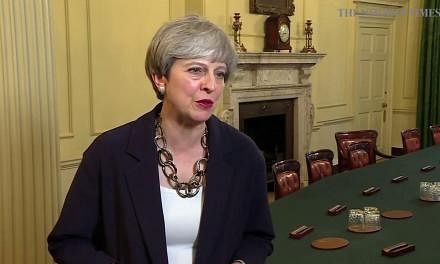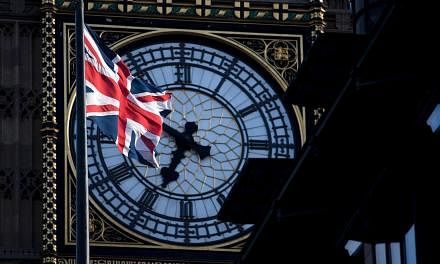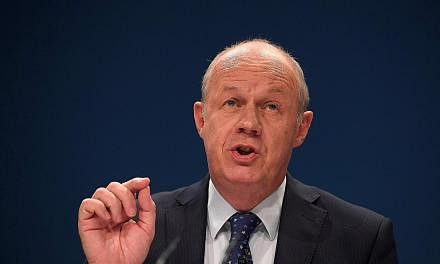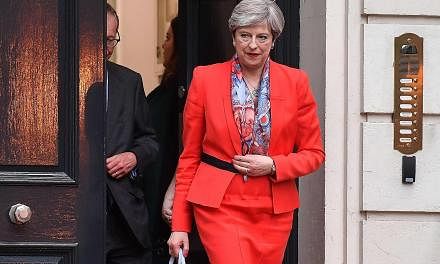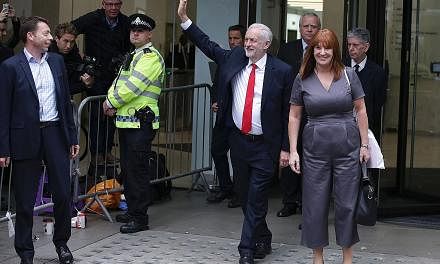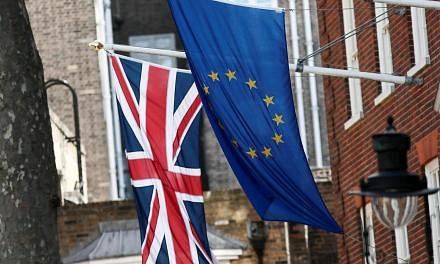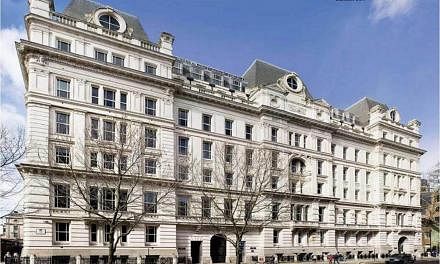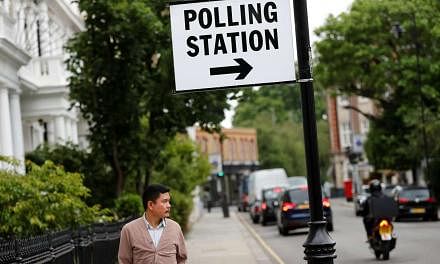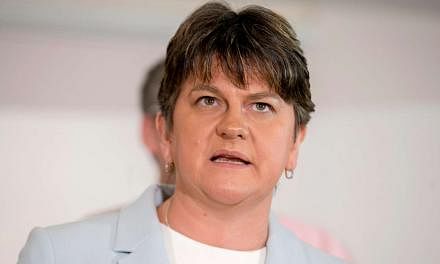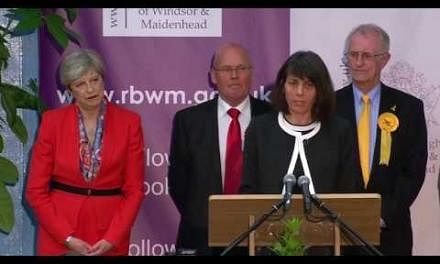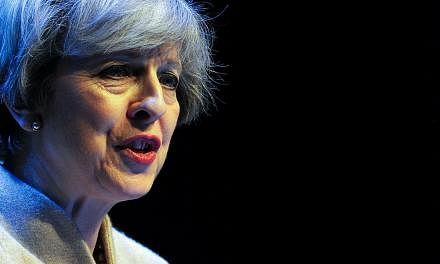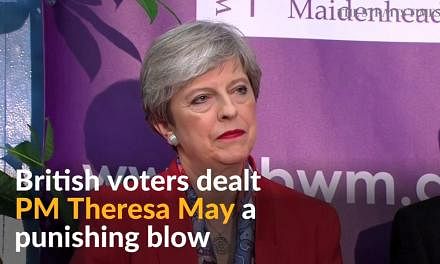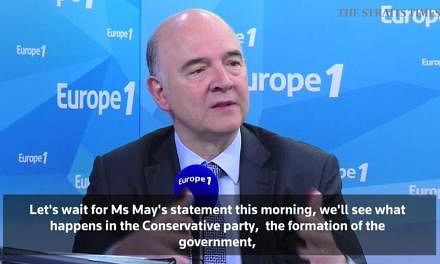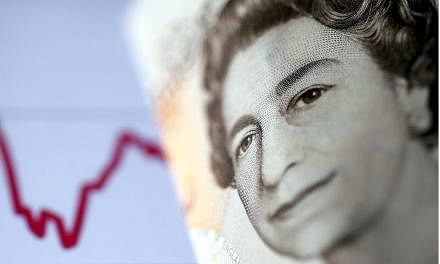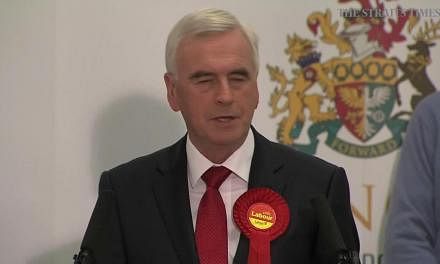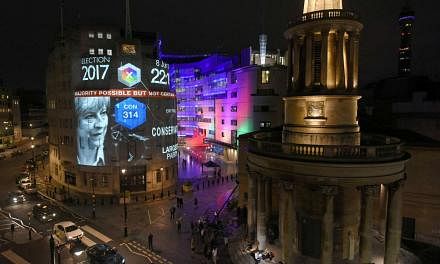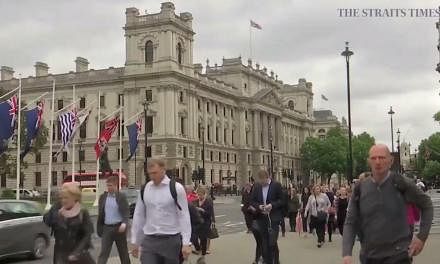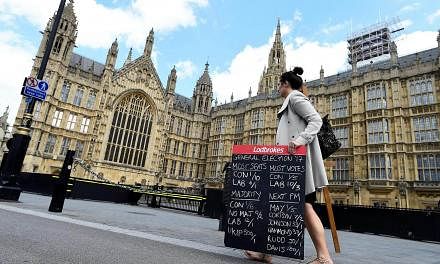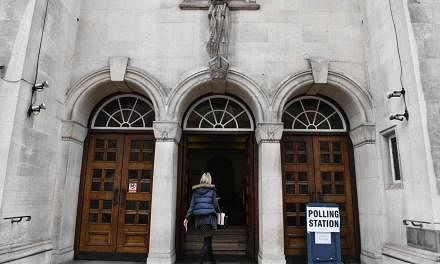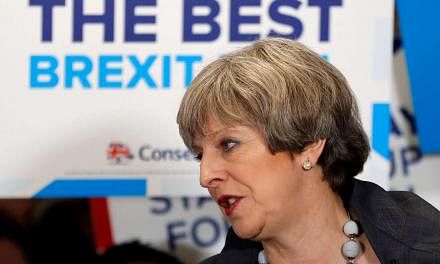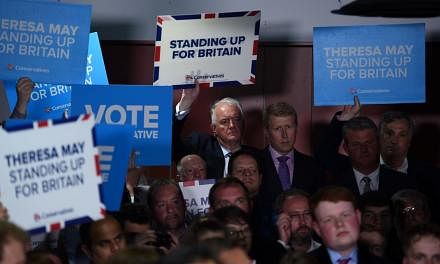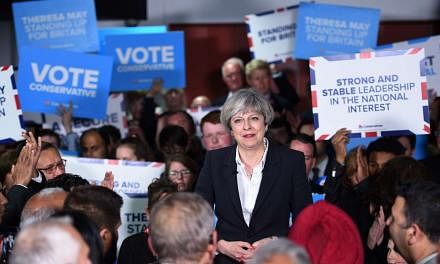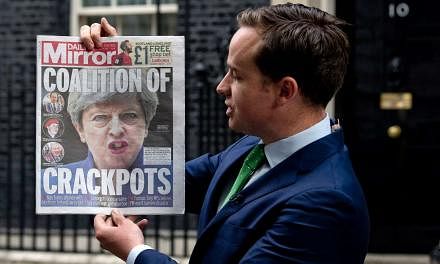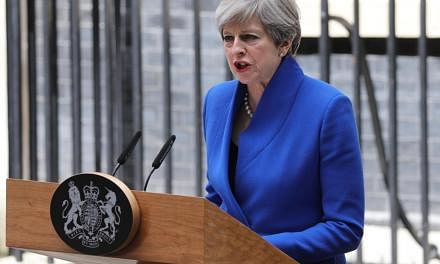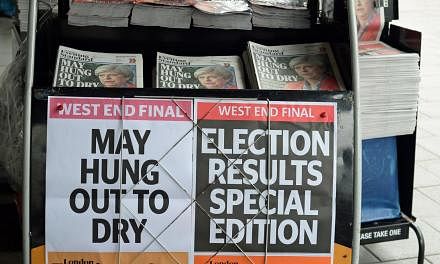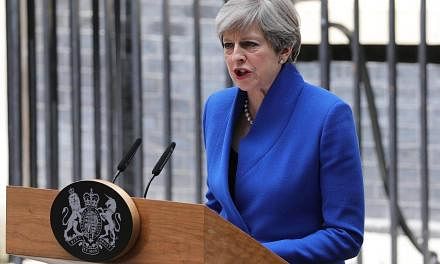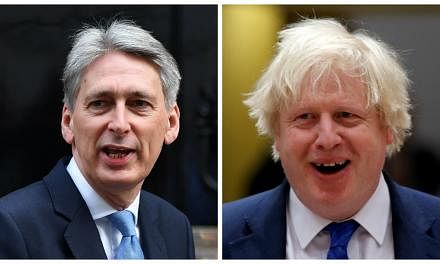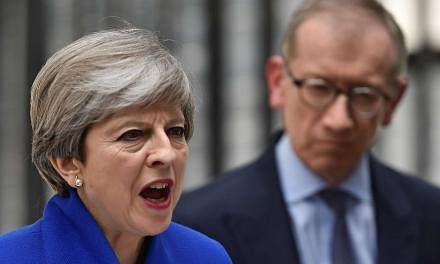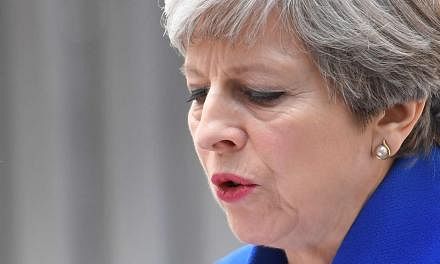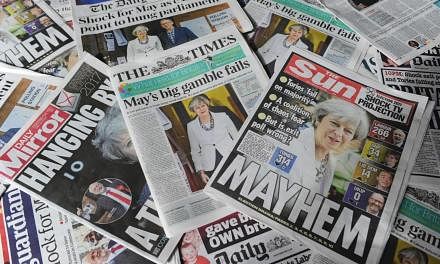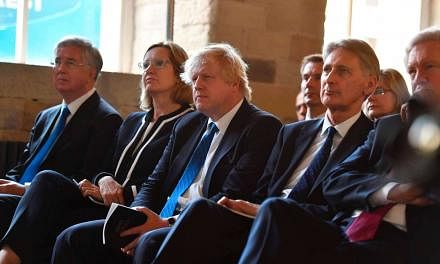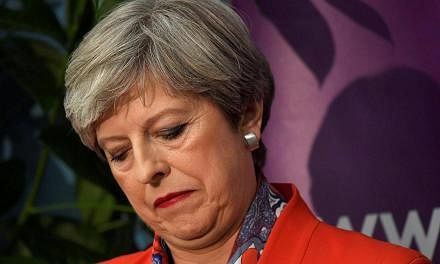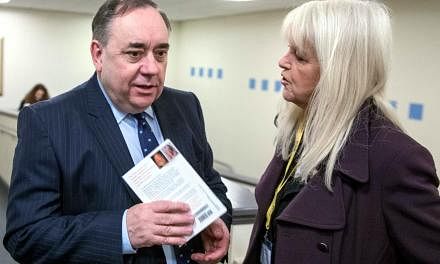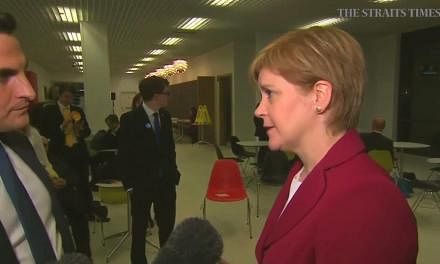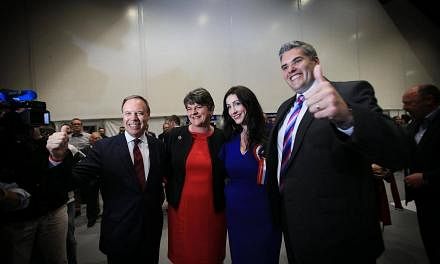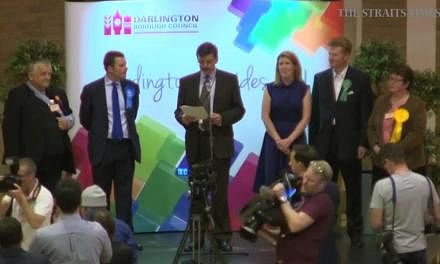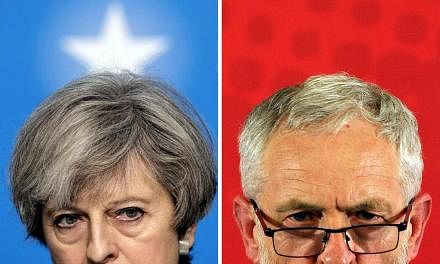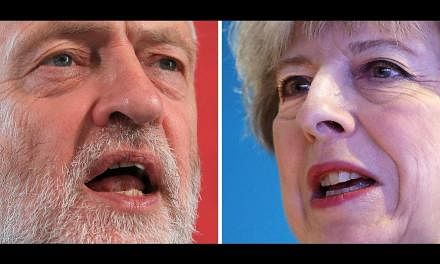Mr Jeremy Corbyn's opposition Labour Party may have come in second in the British elections on Thursday (June 8), but the results amount to a stunning triumph for a far-left leader whom many believed was headed for political oblivion.
A 68-year-old socialist stalwart who has never held major office, Mr Corbyn began his election campaign as rank outsider - a status he turned to his advantage - and experts said the results mean internal party rumblings against his leadership will be toned down.
Meanwhile Mrs Theresa May, the 60-year-old Conservative prime minister, now faces serious questions about her decision to call the vote three years early, putting at risk the Conservatives' 17-seat majority, as well as her leadership.
Here's a look at five of the factors that drove Mr Corbyn's - and his party's - resurgence, and Mrs May's setback.
1. YOUTH VOTE
Britain's two main parties have traditionally divided along class lines, with Labour building on its working-class base and the Conservatives bolstered by their middle-class support.
Pollster Ipsos Mori shows Labour outpolling the Conservatives by 30 or so percentage points among 18- to 34-year-olds but trailing behind by a similar margin among those 55 and older.
Mr Corbyn, a political lookalike to America's Bernie Sanders (the Vermont independent who mounted an insurgent bid for the 2016 Democratic presidential nomination and who said he was "impressed" by Mr Corbyn on a recent trip to Britain), attracted admiring youthful crowds on the campaign trail.
Meanwhile Mrs May alienated her older, middle-class base in ham-fisted bids to curry favour with youths. She laid out plans to trim the generosity of state help for the old, and to get older people to pick up more of their social care bill by drawing down most of their assets, including the value of their homes - deferring payment until after they die.
The proposal backfired, as it was instantly dubbed a "dementia tax". The prime minister was forced into a swift U-turn that did nothing for her supposed "strong and stable" leadership.
2. ELECTION CAMPAIGN
Mrs May had wanted the vote to be a referendum on her Brexit plan. But Mr Corbyn spent little time discussing the issue.
Drawing comparisons to Mr Sanders in the United States, Mr Corbyn on the campaign trail railed against the establishment and promised more social justice, free college tuition, more money for the National Health Service and welfare, the re-nationalisation of the railways and utilities, and much higher taxes on corporations and those earning over £80,000 a year.
His performances on television were calm and avuncular, with a touch of humour. And as the campaign wore on, he appeared to win back the support of most Labour voters in 2015, plus some Liberal Democrats and Greens.
He also landed punches when it mattered, harnessing public angst over Mrs May's leadership after recent terror attacks in Manchester and London.
Indeed Mr Corbyn managed to flip one of his potential areas of weakness - security - to a strength by hitting out at Mrs May for the cuts to police budgets she had authorised as the nation's home secretary, the top domestic security official.
Mrs May, on the other hand, endlessly touted herself as a "strong and stable" leader but finished the race being tagged by critics as "weak and wobbly". She refused to appear in TV debates with Corbyn, and her favouring programmed events, compared badly with the Opposition leader, a veteran grassroots campaigner who enjoys meeting the public.
Anger is now swelling against Mrs May's close circle of aides, Mr Nick Timothy and Ms Fiona Hill, who ran a campaign excluding senior Cabinet ministers and oversaw the writing of the manifesto.
The strategy was to focus the campaign on a presidential-style choice between Mrs May's leadership skills and those of Mr Corbyn. She relentlessly hammered her rival as a far-left throwback to another era who would leave the country vulnerable in both the Brexit talks and at a time of growing terrorist threats.
But she also ducked debates, and rarely mingled with voters in unscripted moments.
"We've learned what we suspected all along: She's not particularly fast on her feet, she's not a natural campaigner, she's not really a people person," said Tim Bale, a politics professor at Queen Mary University of London.
"It was a dreadful campaign - and that's me being generous," Ms Anna Soubry, a Tory member of Parliament who narrowly won re-election, told the BBC.
3. 'DISCIPLINED POPULISM'
Mr James Morris, a pollster who used to work for Labour, said the party's performance was a result of Mr Corbyn's "disciplined populism".
"Labour went into the campaign 20 points behind and, if this exit poll is borne out, (will) finish it gaining ground on the last election and with a chance of forming the government," Mr Morris said.
Before he won an upset leadership victory two years ago, Mr Corbyn had spent three decades as a rebellious rank-and-file lawmaker. His political roots lie in the labour movement and the national campaign against nuclear weapons.
He promised to deliver "socialism of the 21st century," including such goals as nationalising the rail service, pumping billions into the National Health Service and raising taxes on the rich.
Mr Corbyn's vision is a far cry from that of past leaders like Mr Tony Blair, who won three general elections but ultimately moved the party away from its working-class base and in a more moderate direction.
Yet Mr Corbyn proved effective on the stump. "People thought he was useless, incompetent and extremist," said Mr John Curtice, a leading British pollster. "He ends up turning out a better manifesto than the Conservatives, and he can campaign well enough.
"Those who are not unsympathetic to the Labour Party have said he's not so bad after all."
4. IMAGE
Mr Corbyn was able to score unexpected points against Mrs May during the bitterly fought campaign, casting her as cold and uncaring on social welfare reforms and reckless on police funding cuts during her tenure as interior minister - cuts that have been felt in light of recent terror attacks in Manchester and London.
Relaxed and tie-less, he came across at lively rallies as an amiable underdog making a principled stand for society's poorest and managed to appeal to many younger voters.
The bearded father-of-three holds the record among MPs for the lowest expense claims. Teetotal and vegetarian, he does not own a car and prefers to cycle, porridge-fuelled. His hobbies include making jam and allotment gardening.
"You do your job better if you give yourself time to collect your thoughts and do something else," he said.
His third wife Laura Alvarez is 20 years his junior and runs a company importing fair-trade coffee from her native Mexico. They have a cat named El Gato - Spanish for "the cat", which he sardonically claims has "socialist tendencies" as it shares its food with the neighbours' feline.
Mrs May is likewise unabashed about her lifestyle, particularly her fondness for sharp skirt suits and fancy shoes. Yet the vicar's daughter is also socially-awkward and comes across as aloof and disingenuous.
"Theresa May doesn't look happy on the campaign trail," said Mr Mark Wickham-Jones, professor of political science at the University of Bristol. "And Labour have proved quite effective at chipping away at things like her reluctance to debate."
"The vicar's daughter (May) is very pro-establishment. And I think she came across in the campaign as not only as wooden and robotic but actually pretty insincere," said Mr Nigel Farage, former leader of the anti-EU party Ukip.
The candidates spent the last day of official campaigning racing around the country - May by jet, Corbyn by train. "They underestimated us, didn't they?" he told a rally in Glasgow.
5. BREXIT
The 2016 Brexit referendum saw Mr Corbyn vilified for lip-service-only support for the Remain campaign. Angry moderates tried to oust him as party leader, only to be thwarted, again, by the popular party vote.
The battlefield experience may well have helped Mr Corbyn, suggests Prof Bale, calling Labour's rise under Mr Corbyn "phenomenal".
"Corbyn has fought and won two leadership campaigns in two years, seems to have benefited from that experience and is at least authentic rather than, like Mrs May, robotic," Prof Bale told AFP.
His charisma and leftist credentials could well see him carry the Labour banner into the next general election, due in 2020.
SOURCES: Reuters, AFP, Washington Post, Bloomberg

